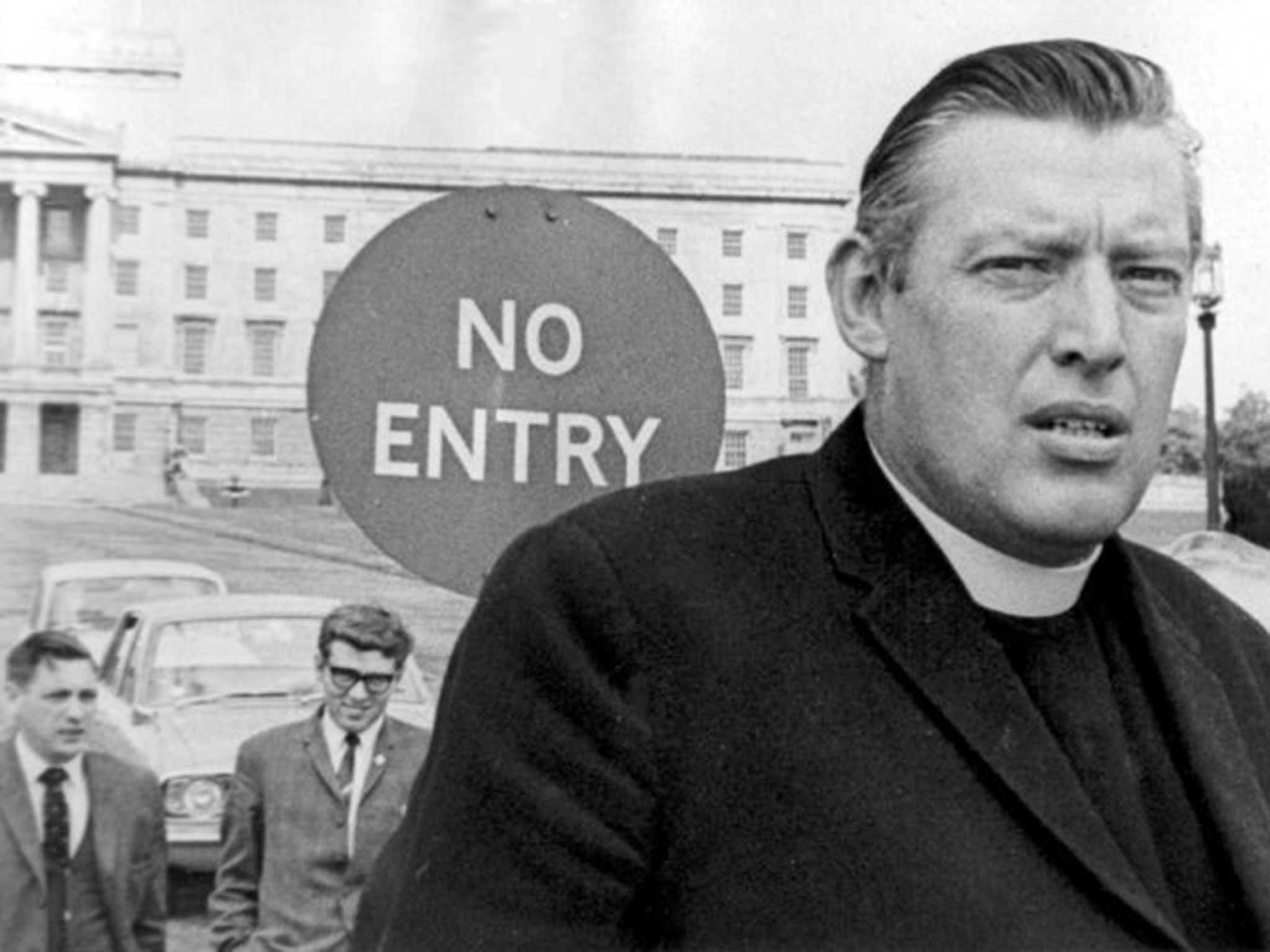The Only Way is Ethics: Ian Paisley is rightly remembered for his intransigence
Our choice of front page photograph for the day after Mr Paisley’s death did not meet with the approval of all readers


The death of Ian Paisley provided an opportunity for reflection on his role on the Northern Irish peace process: both his hindrance of progress and then, eventually, his embrace of reconciliation. Memories of the man are many and varied so how best to illustrate reports that he had died?
Our choice of front page photograph for the day after Mr Paisley’s death did not meet with the approval of all readers, showing him as it did in the days of his rage; teeth bared, mid rant. It was a striking image but not one that was immediately celebratory of a life recently ended. One reader suggested we had shown a lack of taste in favour of sensationalism.
I don’t think that was the case. Not only did the image capture the sense of Mr Paisley as a man of conviction and passion; it crucially brought home just how far he had to move in order for peace to become a reality in Northern Ireland. To have led with a picture that showed the former Democratic Unionist Party leader smiling, or maybe shaking hands with former enemies, would not have done justice to him. The Troubles were characterised by the kind of dogmatic implacability which Mr Paisley specialised in. It is only by remembering his seeming inflexibility that we can properly appreciate the strength of character it took for him and many others to resolve their differences.
There is no grand media conspiracy
About two minutes after I filed last week’s column, optimistically noting the apparent lack of protest about media reporting of the Scottish referendum, the BBC’s offices in Glasgow were surrounded by a large crowd demonstrating against its allegedly biased coverage.
The Independent’s reporting was not, thank goodness, the subject of such mass criticism. While the view expounded in our editorials was that the Union was “better together”, we naturally gave coverage to both sides of the debate. One reader suggested we had erred by exaggerating the possibility of clashes between Yes and No supporters. It is certainly true that we reported the potential for problems to arise and we recorded the hostility some politicians and journalists faced during the pre-referendum debates. Yet we also reported comments by the head of the Scottish Police Federation that the threat and reality of aggressive protests had been overplayed.
To some extent perhaps all media outlets reported the danger and fact of unrest too simplistically. Some of the graffiti and verbal squabbling might have been motivated purely by the politics of the referendum; but some violence, such as there was, appeared to have broader sectarian aspects.
Thankfully, the internet has given all of us access to a vast breadth of information about any given issue. Yet one consequence is that, whenever social media comes alive with a detail which is seemingly at odds with something reported by mainstream journalists, there is a ready assumption that the established media must be deliberately pushing a false or slanted version of events. Alex Salmond’s campaign tapped into the notion of there being an elite at Westminster which cares little about real people. Nigel Farage is playing the same trick further south. In this narrative, the media is often lumped together with the politicians of main parties and blamed for ignoring the “real” concerns of the public.
All newspapers have to take some responsibility for the atmosphere of distrust. But while it is true that we do not always have every last angle on a story, the notion that some ulterior motive can explain every omission is itself one-eyed to the point of absurdity.
Join our commenting forum
Join thought-provoking conversations, follow other Independent readers and see their replies
Comments
Bookmark popover
Removed from bookmarks